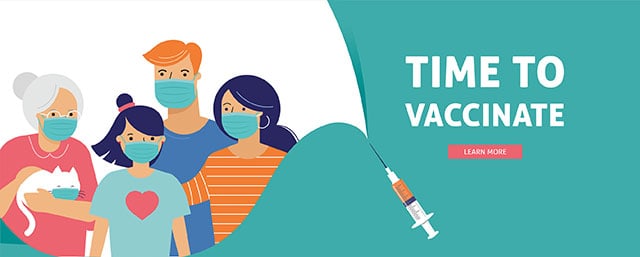
With many in Europe spending the last month in various levels of lockdown, some of us probably have February faces.
But of course, we are also all feeling the warm glow of hope that the licensing of COVID-19 vaccines and the roll-out of vaccination programmes is offering.
However, the recent 2021 Edelman Trust Barometer provides some poignant insights about the potentially concerning issue of vaccine hesitancy.
In fact, it suggests only 2/3rds of people are prepared to have a vaccine within a year of it becoming available, and only one in three are ready to take the vaccine as soon as possible. So, this is more than just anti-vax, it suggests a more mainstream hesitancy.
In part, this is likely exacerbated by the fact that trust in all information sources is at a record low, with trust in governments taking the biggest loss, followed by media and even trust in NGOs is dropping. In fact, the report suggests business has become the only trusted institution, being seen as both competent and ethical.
Beyond the Trust Barometer, there is also concern among public health officials that sections of the population will reject having the vaccine and that this may be more pronounced in specific communities. The proliferation of misinformation, combined with reduced trust in traditional information sources, should therefore be a concern for us all.
You may be thinking: if they won’t have the vaccine that’s their choice, why should we bother convincing them? Even if we take out the moral response to that statement, a very practical one remains.
When these individuals become ill, they will require costly care and support. That care will come from healthcare systems still stretched following the unprecedented demands of COVID-19.
This could stop or delay others getting the care they need. And of course, not having a COVID-19 vaccine may mean they also won’t have the flu vaccine, or get their children vaccinated, meaning the negative impact proliferates. So, it is worth at least trying to address the concerns of vaccine hesitaters.
Sadly, just like many of Shakespeare’s plays, where disinformation and confusion changes the smooth course of events, sometimes with tragic consequences, we face a similar risk with those who are distracted by the prevalent fake news and scaremongering.
In Shakespeare the truth eventually shines through and they live happily ever after. In real life it is not so easy. Once again, I am reminded that those working in the pharmaceutical sector need to consider the voice we have and how we use it to ensure the benefit of vaccinations reaches as many people as possible.
Have you been ‘popped the question’?
If they know what you do, and even perhaps if they don’t, I would be surprised if somebody has not yet asked you whether you will get vaccinated.
In reality, this will be more about reassurance around whether they will get vaccinated, rather than you. I hope, barring any medical reason not to, that as someone working in the sector, your answer will always be ‘yes, most definitely’.
There are many who may just need to be directed to the right information, or see the confidence of a peer, to overcome their concerns. That is why I want to suggest here that we can all use our voices as individuals to help provide that direction and confidence.
Be prepared
But what to say? We need to ensure our response shows that we trust and are confident in the sector in which we work. We also need to be careful about what we say, depending on to whom and how we are communicating.
Codes and regulatory aspects don’t disappear just because we are trying to do something good. In most cases, we probably just need to be prepared for the question and know which balanced, simple and compelling information to recommend.
Those working in pharma have better access and can recognise which sources of information these are. It might be to share some of your company’s information; it might be a public health or patient charity website; it might be a local or celebrity influencer commenting on getting vaccinated, whatever you think will be most impactful.
Tailored response
Different communities may have different questions or information needs. For example, it might be as simple as demonstrating the vaccine does not contain meat or alcohol (areas of fake news which seem to be causing significant concern in some communities, due to religious considerations).
The accelerated development time may have also raised concerns, so reassurances in the robustness of the regulatory approval process might be required. They may have underlying health conditions which necessitates direction to relevant patient support charities or health provider information.
Knowing where this information can be found means you can be prepared for when the question comes, rather than having to grasp for ideas at the time.
Your response might be more influential than you realise. And the question will come from somewhere, at some point, so please be prepared.
‘No legacy is so rich as honesty.’ William Shakespeare, All’s Well That Ends Well.




